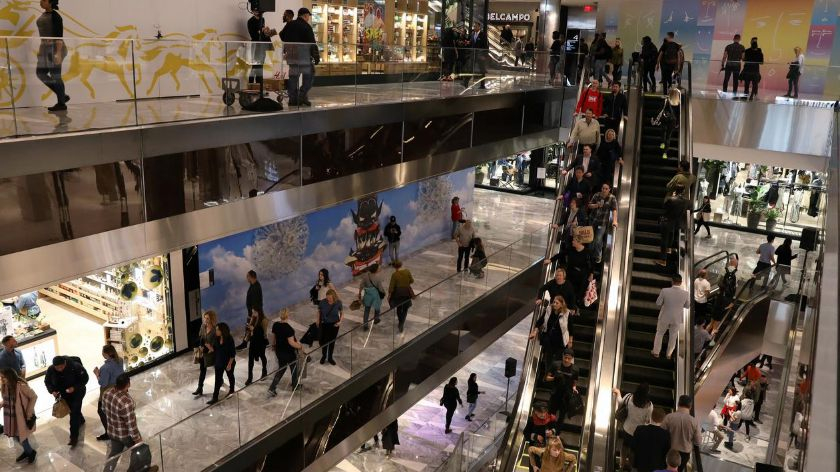
Biz Analysis
09:34, 10-May-2019
Trump's new tariffs on China to cause price hikes, job loss in U.S.
CGTN

Donald Trump's latest round of tariff increases on China could cost an average U.S. family of four 767 U.S. dollars a year, a study from Trade Partnership, an international trade consulting firm, estimated.
By the end of 2020, they could lead to a loss of 200,000 jobs, according to forecasting firm Oxford Economics.
The impact will not end there. Trump's plan to lift tariffs on 200 billion U.S. dollars of Chinese imports to 25 percent from 10 percent is almost certain to slow U.S. economic growth and, if they stay in place for an extended period, could cost hundreds of thousands of American jobs, one forecaster said.
The new duties would affect nearly 6,000 products, including many consumer items such as furniture, handbags, electronics, clothing, personal care products such as perfumes and shampoos, luggage, bedsheets, and cereal. Retailers in the U.S. will have little choice but to raise prices on a wide range of goods to cover the rising cost of imports, according to economists and industry consultants.
The National Retail Federation said hundreds of thousands of businesses around the country will be burdened by the China tariffs. The trade group and others like the Retail Industry Leaders Association have repeatedly said tariffs are taxes paid by U.S. businesses and consumers, not by China.
So far, U.S. retailers have dealt with the tariffs either by absorbing some of the expenses, persuading their Chinese suppliers to cut costs, spreading the added fees across many products to minimize the impact, or by importing more goods before the first round of duties took effect.
But the 25 percent increase will make it much harder to find new ways to absorb the cost, forcing most retailers to pass it on to consumers.
U.S. retailers plan for price hikes
"We would like to raise prices immediately," said Arnold Kamler, Chief Executive of Kent International, which sells bicycles that retail from 80 U.S. dollars to 200 U.S. dollars at major retailers like Walmart, imports about 200 containers a week from China this time of year.
However, Kent's major retail partners have policies that prevent the price hike in a short time. Most major retailers require about 60 days for new prices to work through their systems, he said.
"We will need to raise prices, if it goes through, in 60 to 90 days," said Kamler, adding that the company has less than two months of inventory on hand.
Sherrill Mosee, owner of Philadelphia-based MinkeeBlue, which sells work and travel tote bags for women on websites like Amazon.com, said her company cannot absorb the new 25-percent tariff on top of the 10-percent tariff hike last year, which itself added to the existing 17.6-percent tariff on synthetic leather used to make her bags.
Mosee, who put in a new order for 1,500 bags from China just days before Trump announced plans to increase the tariff rate to 25 percent, said she plans to raise the price "a little" on the new bags, which are scheduled to arrive by early July.
U.S. economy to slow down
The increasing tariff on the 200 billion U.S. dollars in imports to 25 percent would triple the impact to three-tenths of a percentage point, taking a substantial bite out of U.S. growth that many economists forecast at about 2.2 percent this year, according to Goldman Sachs.
Until now, Trump's levies on shipments from China have trimmed growth by an estimated tenth of a percentage point for all of 2019, according to Oxford Economics.
Many are still hopeful a resolution will emerge. Lauren Goodwin, a portfolio strategist at New York Life Investments, said she expects a result that would prevent a full imposition of tariffs for a lengthy period of time.
Source(s): Reuters

SITEMAP
Copyright © 2018 CGTN. Beijing ICP prepared NO.16065310-3
Copyright © 2018 CGTN. Beijing ICP prepared NO.16065310-3